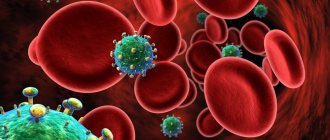Schizoid personality disorder is an extreme degree of the schizoid personality type. It develops if a schizoid person grows up in particularly unfavorable conditions. I have already written about the schizoid personality type, today I will write about schizoid disorder and its causes.
Schizoid personality disorder is included in both the American Psychiatric Association DSM 5 and ICD 10 classifications, which are most often used by domestic psychiatrists. Although I usually prefer to use the DSM, this time I will rely on the signs described in ICD 10, since there are more of them.
According to ICD 10, a diagnosis of schizoid disorder can be made if a person meets at least four criteria. I would say that any person with a schizoid personality type corresponds to four signs. A pronounced radical is not yet a personality disorder. In my opinion, schizoid disorder should be suspected if you meet 7-9 criteria.
Schizoid personality disorder: criteria
- Few things are enjoyable. This means that there are very few activities to do, and maybe even just one activity that makes you happy. We are talking about a permanent property, and not about a temporary depressive period.
- You are considered emotionally cold, distant, and show only a small range of emotions. You may have a lot of feelings for others inside, but you usually don't show them. People in a new company do not approach you; you usually sit in a corner alone. You may be told that you look arrogant or that you think you are smarter than those around you (you may indeed think so).
- You are bad at expressing both tender, warm feelings towards others and anger at them. You may feel like an emotionless robot when you need to praise someone or tell them how you feel about them. People may think that you never get angry and that you are a very calm person. You really almost always hold back your emotions. In close relationships you can be very emotional, but not with friends and acquaintances.
- When you are praised or scolded, it seems that you don’t care, you don’t show your feelings. Or you may actually not enjoy praise and not be upset by criticism, even within yourself.
- You have little interest in sexual contact with other people.
- You prefer to do almost everything alone. Other girls are teaming up to go to lunch together in the cafeteria, but you don’t understand why this is necessary, you can go alone. Coordinating your work with other people is difficult for you, so you prefer activities that you can do alone. You would rather read a book than go to a bar.
- Excessive introspection and fantasizing. This means that it is as if there is an observer in your head who looks at your actions from the outside and analyzes them. You think a lot about your own and other people’s motives, about the events that happened. Internal dialogue does not torment you, it is familiar. You often imagine various unrealistic situations and spend a lot of time in these fantasies.
- Lack of close friends (no more than one) or trusting relationships and unwillingness to have them. I don’t agree about the reluctance of schizoid people to enter into relationships. I have not yet seen a single schizoid person who did not suffer from loneliness and for whom people did not matter much. But yes, there may be no friends at all. There may not be a loved one. Most likely, a person with schizoid disorder has no more than one person with whom he communicates closely. Or maybe there will be no one at all (except relatives).
- Unintentional disregard for social norms, lack of understanding of conventions and accepted rules. You often feel like you've fallen from the moon and don't understand basic things about social interaction. You wonder why people behave the way they do. It is difficult for you to take into account the hierarchy; you do not care how you dress.
What to do?
If you are in a relationship with a schizoid
You can invest your psychic energy in a relationship, but it will always be a “one-sided game” - you will not receive the necessary emotional response in return. The feeling of a fish hitting the ice very often accompanies partners of schizoids.
When a person with schizoid accentuation is suffering, you may try to give him support, but he will contradictively withdraw. Moreover, this is not narcissistic counterdependence (the “catch me” game), but an attempt to move to a safe distance in order to preserve one’s personality from the “invaders”. When he sees that you feel bad, he thinks that the best thing he can do is move away from you. Leaving you alone with feelings of abandonment and rejection. By and large, he exposes you to the same retraumatization that he himself experienced in early childhood.
How then to deal with them?
- Give him more personal space. Don’t try to quickly have frank conversations and close the distance - this can be intimidating. Stay in “pre-contact” for the amount of time he needs to build trust.
- Find an indirect way to talk about feelings. People of the schizoid type find it very difficult to show their emotions, even if they want to. Try to find an allegorical way to discuss what is important: talk about films, paintings, music, refer to symbols, metaphors and literary images.
- Be honest and truthful. Schizoids cannot stand lies and sense insincerity well.
- Help him recognize emotions. Learning to manifest them, to be aware of them, to differentiate them is one of the main skills that can dramatically change their life.
- Do not judge him for his desire to hide in his inner “house”. It is extremely important for him to know that he has you, but it is also important to maintain his autonomy. Let him understand - “you can leave me, but I will wait for you.”
- He will make the one who has passed all the cordons of his seemingly impenetrable borders very significant for himself. You will become one of the chosen ones whom he will let into his world. However, the game should be worth the candle: both should carry out the internal work in a couple. And your schizoid partner, first of all, is the one who hurts you with his emotional unavailability.
If you yourself have a schizoid personality type
The main thing you can do to help yourself (and your partner who is having a hard time) is to consult a psychotherapist in a timely manner. Drug therapy is ineffective here, but other therapeutic techniques (for example, exposure) work well.
A specialist will help you restore contact with your own emotions (mainly fear, anger and shame), develop the ability for emotional intimacy and teach you the ability to withstand various feelings, extracting from them a resource for your own development. After all, the ability to build close relationships is one of the most important indicators of a person’s mental health.
Here you can see a psychologist.
Photo: Unsplash.com
Other signs of schizoid personality disorder
The famous American psychoanalyst Nancy McWilliams wrote that classifications of diseases, such as the DSM, include only a short list of the most obvious, verifiable signs that the maximum number of people with a given disorder have. Psychotherapists in their practice usually use less obvious, but significant signs of personality disorders.
Schizoid personality disorder is most manifested in communication problems. The person seems to have difficulty understanding the small nuances of relationships, which is why he has to rely heavily on reason and logic. It's not clear how to get close to people. Why does everyone succeed in this easily, in any new group people laugh together and trust each other already on the second or third day, but you cannot even trust those with whom you have been communicating for many years?
It’s as if you are always tense and expect bad things from people, indifference, devaluation, attempts to suppress, a sharp change in attitude towards you. To avoid this, you use an avoidance strategy. You move away, become silent, move away, don’t come closer. This is a constant strategy, you will never be caught casually talking with someone.
You feel like other people are communicating at a different speed. That they rely on something in communication that you cannot rely on. You see that other people react to you in an unusual way, not the way they react to others, but you don’t know what causes it. As a result, you get used to having a lot of control over your facial expression, and most often it is blank and expressionless. Perhaps you really want to be closer to other people, but you don't know how to do it.
Diagnostics
It is not enough to confirm a schizoid personality type with the mere fact that a person has signs of detachment and loneliness. To make a correct diagnosis, it is necessary to have other factors, such as a person’s complete loss of the ability to adapt to certain circumstances, as well as an internal destructive process that undermines health.
In many cases, the exact cause of personality disorders is unknown, but according to psychiatrists, certain events increase the risk of developing or are the starting point of the disorder:
- The presence of disrupted behavior patterns or mental illness in close relatives.
- Violent, unstable, or chaotic home life during childhood.
- Diagnosis with conduct disorder in childhood.
- Disorders of the nervous system at the structural, molecular and cellular level.
There are no evidence-based laboratory tests to specifically diagnose schizoid disorder. Doctors use various tests to check for schizoid personality traits. Tests are also used to rule out physical illness and draw the line between illness and deviations in personality characteristics.
- Sociopath test. The questions included in the test will tell the doctor whether the patient has signs of antisocial disorder.
- Depression test. The answers determine the type of depression, mild or severe.
- Rorschach test. Psychodiagnostic test for the study of mental disorders.
- Psychological testing. Using the test, individual psychological deviations of a person are established and measured.
Test psychodiagnostics can be ordered at Psychotherapy Centers. The cost of the procedure is from 2 thousand rubles. In addition to testing, patients are interviewed by a psychotherapist or psychiatrist.
Schizoid and psychologist
As a psychologist, I observe that people with schizoid personality disorder tend to look away when talking about something. They can tell a lot. They have a lot of introspection and are eager to share it. They appreciate it when you give them a new idea. Even if they don't agree with it, they will remember it and think about it.
The most important problems that concern them are a constant feeling of insecurity and problems in communicating with people. These are interconnected problems, since it is people who pose the greatest danger. You can't be safe with them, you can't relax.
Moreover, it is typical for schizoids to always look for the reason within themselves. They are characterized by a request for therapy, such as: “My relationship is not working out, help me understand what I’m doing wrong.” Unfortunately, this comes with a constant feeling of “something is wrong with me.” It usually takes a lot of work for a schizoid to begin to notice the other person's contribution to conflicts and problems in the relationship.
Schizoid people are usually punctual and constant. Unpleasant incidents rarely happen to them during therapy. They appreciate the attention that is paid to them, since there is usually very little of it in life, as well as frank conversations with people.
Correction
The schizoid personality type, whose symptoms include maladaptive behavior characterized by recklessness, social isolation, mistrust, and emotional outbursts, can change over the course of several months.
Relieving anxiety and depression is a priority.
For this we use:
- Conversational methods of correction. Group therapy and behavior modification carried out at home, participation in self-help groups can help change socially undesirable behavior.
- Treatment with psychotropic drugs. Psychopharmaceuticals are sometimes used to accompany psychotherapy. This helps if, in addition to schizoid symptoms, mental disorders such as anxiety, depression or delusions occur. If schizoid disorder is not accompanied by other symptoms, then there is no obvious benefit from psychotropic drugs. In addition, medication prescription may affect the effectiveness of certain psychotherapeutic approaches.
The schizoid personality type, the signs of which have been diagnosed, is difficult to correct. Although there are many treatments for the disorder, none of them are 100% effective.
Cognitive behavioral therapy
As with any personality disorder, the main treatment option is individual psychotherapy. However, people with this disorder are unlikely to seek therapy unless they are experiencing increased stress or pressure in their lives. Treatment is usually short-term and is carried out to help a person solve a specific problem.
The development of mutual understanding and a trusting therapeutic relationship in this case occurs slowly, and the treatment process may never develop into a trusting relationship between patient and psychiatrist.
People with schizoid disorder often maintain social distance from people in their lives, even those close to them, so the therapist should try to ensure the client feels safe in the therapeutic relationship. Recognizing the client's boundaries is very important when working with these patients.
As with most personality disorders, behavioral therapy is most beneficial when the therapist focuses on simple treatment goals, trying to alleviate current pressing problems or stressors in the patient's life.
Cognitive restructuring exercises should be aimed at eliminating irrational thoughts that negatively affect the patient's behavior. At the same time, the therapist must be careful not to “overwhelm” the patient.
Group therapy
This type of therapy was first used by Boston physician D. H. Pratt in 1905. Group psychotherapy is considered an alternative method for schizoid disorder, and is not usually used for initial treatment.
A person who suffers from schizoid disorder, if placed in a group of similar people, is likely to stop treatment prematurely because he cannot tolerate the consequences of being in a social group.
The therapist creates a group setting in which the patient interacts with other people who are also learning new interpersonal skills. Over time, group therapy can provide a support structure and improve social skills.
People with schizoid disorder tend to be very calm and withdrawn in groups. However, if the group accepts the new person and he feels safe, this therapeutic method may help him overcome his fears of getting close to people.
Schizoid types can learn to receive new emotions. Patients learn in groups to accept praise and criticism from other people, improve their social skills, accept the empathy of others and thereby improve their social skills.
Psychoanalytic and deep psychology based therapy
The goal of psychoanalytic therapy is to create conditions in which patients learn to contact people and establish interpersonal contacts. They must learn to independently design interactions with others in such a way that they remain stable.
But very often in these classes, patients refuse interpersonal relationships and prefer to be alone. The task of the psychotherapist is to find, together with the person concerned, a different, positive experience.
But in general, psychoanalytic ideas for schizoid individuals turn out to be more interesting and accessible. They enjoy exploring all the nooks and crannies of their mind with a psychiatrist and finding attractive solutions to their conflicts.
Therapy of creative self-expression according to M. E. Burno
The essence of the therapy proposed by modern psychiatrist M.E. Burno is to help a person who has complex experiences of his own inferiority to feel and comprehend himself as a creative and spiritualized individual. To do this, a psychiatrist must study the natural character of a person, understand his mental makeup and help him find his meaning, realize himself as a creative person.
The psychologist invites a person to participate in any type of creativity. He can write a book, a diary, take part in a play, draw a picture, thereby expressing his emotions. M.E. Burno independently wrote psychotherapeutic plays, staged productions and invited his patients to participate in them.
He believed that any type of creativity creates the preconditions for revealing their personality and future interaction with society, helping them realize their place among people.
Personality disorders often ruin the lives of both the sufferer and those who care for them. The schizoid personality type often causes problems in relationships, at work or at school, and leads to social isolation or alcohol and drug abuse.
However, if a person has found his own way to eliminate the negative signs of the disease, he can learn to cope with his illness and live a full life.
Author: Belyaeva Anna
Schizoid personality disorder: causes
I will start with the reasons for the formation of the schizoid personality type. It is formed in the first six months of life and is associated with the inability of the mother to emotionally merge with the child. For some reason, the mother does not learn to understand the child intuitively with the help of mirror neurons, but unconsciously tries to avoid communication with him.
If there is no intuitive connection, the mother has to rationally guess why the child is crying, what he needs now. This fit is never exact. The connection between mother and baby is normally built on unconscious reactions and reflections of each other's emotions. If there is no precise fit, the baby's anxiety level increases.
This early anxiety underlies later insecurity problems. Schizoids' problem with insecurity is not related to traumatic events or betrayals. It is associated with numerous, everyday manifestations of indifference and neglect.
In addition, the absence of the mother’s accurate reflection of his emotions, which the baby needs, creates the feeling that the mother does not like the child, that he is somehow bad. This feeling of one's own badness is different from the narcissistic feeling of one's own insignificance, which develops much later.
In the future, everything depends on whether the schizoid child will have a loving relative, for example, a father or grandmother, who will show him attention and love until he grows up. It is very important what kind of relationships a child develops among his peers. A narcissistic environment is especially harmful for a schizoid child.
If communication with a group of peers at school does not work out, the schizoid will withdraw from communication. His communication skills will suffer greatly. Not having enough nonverbal communication with the mother in infancy already creates a poor foundation for communication. But if the group of peers does not fill the gap, then problems with communication in the future will be very serious.
As a rule, schizoid personality disorder is expressed in the desire to communicate with people only on the basis of the specific, unusual interests of the schizoid himself. Small talk, mutual fun and laughter will remain the most difficult things for a schizoid person, and yet, ultimately, most of the friendly contacts are built on them.
Signs and symptoms of the disorder
Clinical signs of schizoid disorder are not always the same, since individuals are formed under the influence of different environmental factors. A person with SPD may have the following traits:
- decreased or lack of emotional understanding – weak empathy;
- is more respectful of other people's personal boundaries;
- interests and hobbies are related to solitude;
- reluctance to maintain active social contacts;
- care little about the opinions of others, but prefer honesty, pragmatism, and sincerity;
- does not like excessive attention;
- prefers non-contact forms of communication;
- does not tolerate talking about “nothing”, lies, hysterics;
- self-sufficiency in introversion, loneliness, isolation;
- tendency towards introspection - “immersion in oneself”;
- awkwardness, discomfort in the presence of a large number of people;
- a tendency to choose theoretical, exact professions, as well as those related to art and philosophy;
- non-standard, eccentric behavior - a strange choice of clothing for most, indifference to praise or criticism, a different perception of banal things from others;
- less sensitive - physical touch does not bring much pleasure;
- often, but not always, a weak sexual constitution, low sexual activity;
- there is no paranoia, distorted perceptions or cognitive impairment.
Social distancing is seen as a protective mechanism. People of this type often have a richer world of their own fantasies, developed abstract thinking, and a special perception of things invisible to others. They often prefer the company of animals, solitude in nature, and quiet places to live. A striking example of schizoid personalities are the following characters: Sherlock Holmes, Gregory House or Batman.
In men
Such men give the impression of being dispassionate loners, devoid of a sense of humor. At the same time, they are able to maintain a sufficient level of social activity, which is required for work or normal life activities.
Unlike autistic disorders, schizoids understand the emotions and feelings of other people, but do not strive for them, as they experience discomfort.
Outwardly “cold” behavior does not mean a lack of desire for at least minimal affection. Schizoids rarely marry, but from time to time they can find partners who respect their emotional boundaries. At the same time, they are more sensitive to separation, experience it more acutely and longer.
Among women
According to Russian guidelines, the schizoid personality type is half as common in women as in men (1:2). American classifiers (DSM-IV, DSM-5) do not provide reliable epidemiological data. The exact prevalence of SPD in the population is unknown, let alone the strong gender differences.
Schizoid women are full of contradictions. Feeling self-sufficient in their detachment, they may need a partner. On the surface they are unemotional, but inside they are impulsive, bright, imaginative personalities.
The priority in the life of such girls is not marriage, but personal comfort. They choose calm men or women who respect introversion. Often, schizoid individuals prefer impersonal sexual contacts by agreement, not allowing anyone to approach their inner “I”.
Treatment of schizoid personality disorder
Schizoid personality disorder is treated with non-drug psychotherapy. Initially, I recommend individual psychotherapy. With schizoid personality disorder, it usually takes several years until results begin to bring changes in life. But if you also have borderline personality disorder, then you see results quite quickly.
After a year, two, three, I usually advise adding group therapy. Group therapy brings enormous benefits to schizoid people. This is where the missing communication skills are obtained. Personally, I recommend group gestalt therapy with a good, fairly safe trainer. Tough, provocative methods and trainers will not work.
But here you need to rely on your desire and willingness to be in a group. If you feel that it instills great fear in you or you do not see any meaning in it for yourself, then you should postpone this method or abandon it altogether.
The main part of the work is to expand our understanding of the motivation of other people’s behavior, our own inner world, our own and other people’s emotions. This is a slow, painstaking work of differentiating different psychological manifestations and finding meaning.
If you think you may have schizoid personality disorder and would like to change something in your life, you can contact me. I work quite a lot with schizoid people, especially women. Help from a psychologist for schizoid personality disorder
Psychological characteristics of the schizoid personality type
The leading psychological defense for this category of people is withdrawal into fantasy. Thinking creatively about the world is not always an escape from reality. If real life is replaced by an illusion, then this can be considered as one of the signs of this type of personality.
Schizoids are mainly attracted to theoretical, humanities, philosophy, and creative professions that require creativity and an individual mode of activity.
These people are rather introverted, their inner world is wide and multifaceted, among them there are many geniuses, hermits, and extraordinary personalities.
Causes
The causes of SPD have not yet been established by medical science. However, there is reason to believe that a combination of genetic and psychological factors plays a major role here. Schizoid disorder is genetically related to schizophrenia. It is known that this disorder is more likely to affect those people who have a family history of relatives with schizophrenia. There is no doubt that psychological trauma received by the child in childhood, episodes of violence against the child, and too harsh upbringing also play a significant role in the occurrence of the disorder.
Kinds
Schizoid accentuation is the presence in a person of characteristic signs of a mental disorder within the clinical norm. Deviations affect a person’s thinking and behavior. However, character traits are quite manageable and controlled by the individual. Schizoid accentuation of character is considered an extreme variant of the norm, schizoid psychopathy is an anomaly, schizophrenia is a mental illness.
Accentuation does not become a cause of social maladjustment, but serves as a regulator of an individual’s relationship with the outside world. Accentuation is often a mechanism of defense or adaptation. Unlike schizophrenics with a poor inner world, people with schizoid accentuation of character have a colorful and multifaceted inner space. The diagnosis of schizoid psychopathy is made based on the following criteria:
- The severity of abnormal character traits.
- Totality, predominance, dominance of abnormal features.
- Social maladjustment.
In cases of mild manifestations of the disorder, we are not talking about a mental diagnosis, but about personality characteristics. There are schizoid character types with sensitive and expansive manifestations. In the first case, the individual has traits characteristic of excessive sensitivity - shyness, timidity, asthenic affect (increased fatigue, instability of mood, weakening of self-control and endurance, impatience, restlessness).
Expansive-schizoid accentuation is the predominance in character of such traits as emotional coldness, sometimes feeble-mindedness, sthenic affect (increased performance, ability for long-term, continuous activity, resistance to external adverse factors, for example, lack of sleep). An expansive schizoid guy is often the owner of a strong-willed, decisive character. He does not tend to hesitate when making decisions; he rarely takes into account the position of other people.
In relationships with colleagues and acquaintances, such people behave dryly and formally. They are principled and often indifferent to the fate of others. They are often capricious and arrogant, and have a harsh, cruel disposition. Despite their tough character, they are vulnerable to negative reactions and assessments from others. In extreme situations, they show fussiness and are prone to outbursts of aggression and impulsive actions.
The variant schizoid-hysteroid personality type is distinguished by its characteristics: narcissism, egocentrism, demonstration of mental superiority. Unlike schizoids, schizo-hysteroid people are sensitive to the attention of others and dependent on it. Schizo-hysteroids are characterized by mannerisms, which is reflected in the choice of clothing, hairstyle and overall appearance.
The schizoid-epileptoid type combines pedantry, scrupulousness, persistence in achieving goals, innovation, and the tireless generation of new ideas. Usually such people pay great attention to building a career. They are zealous and responsible in fulfilling their official duties. They are characterized by the following traits: impartiality, external indifference.










